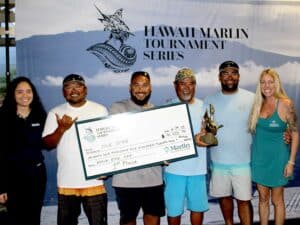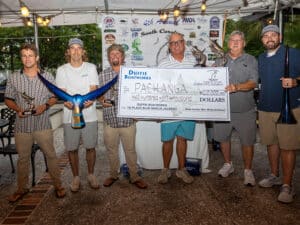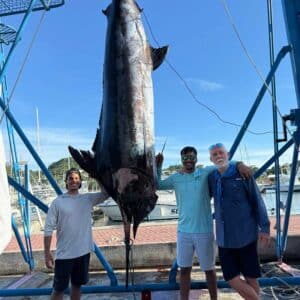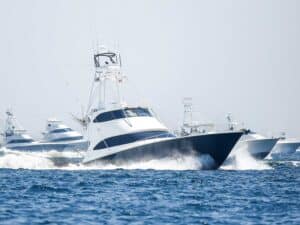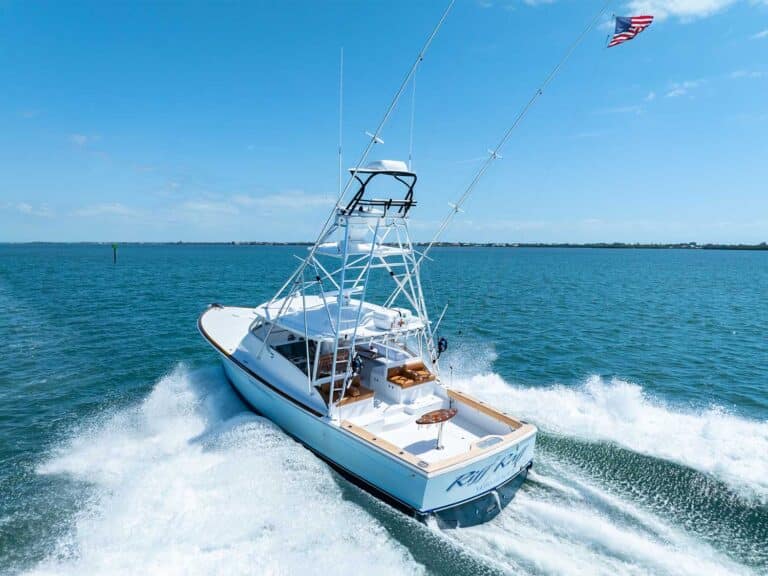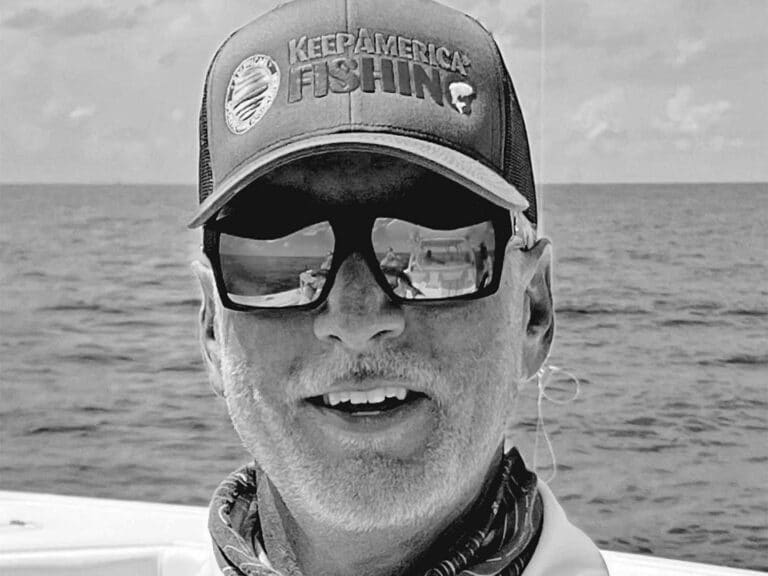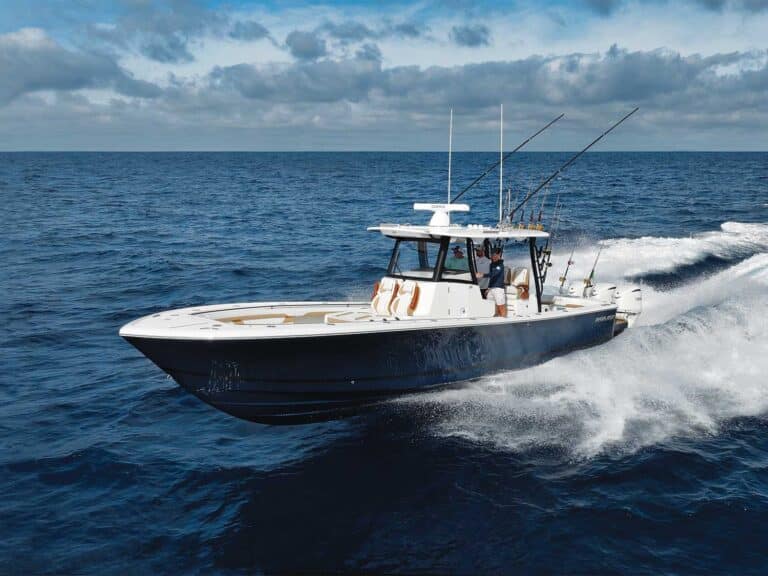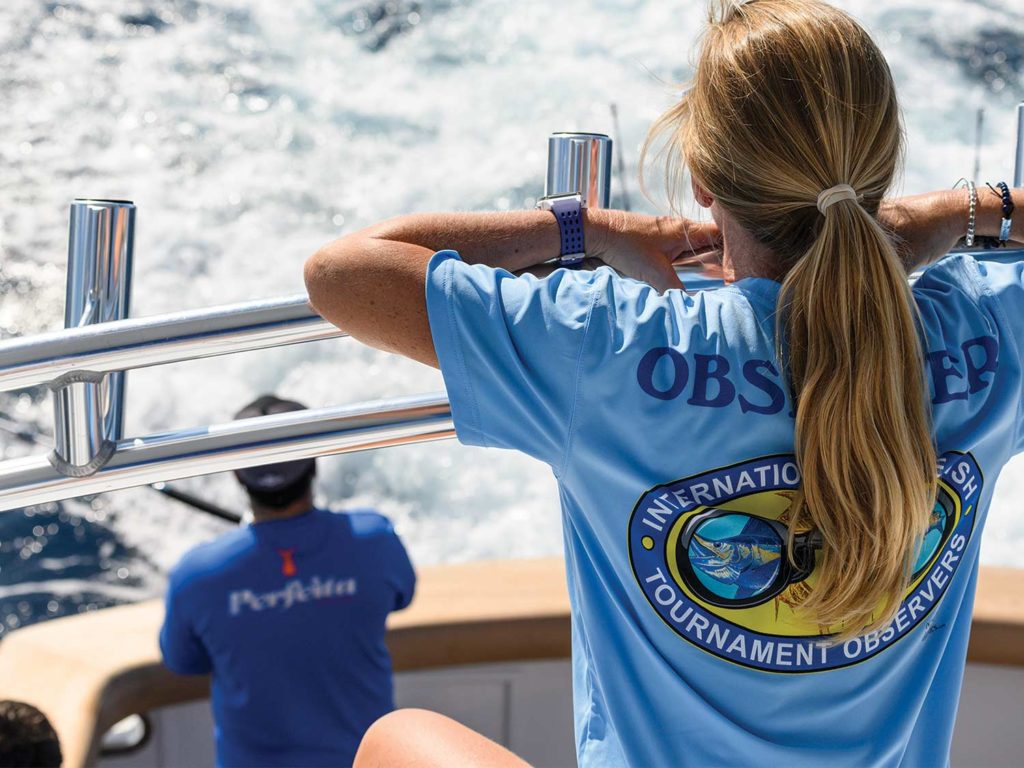
I never thought that I would be on the rules committee for a high-profile billfish tournament, much less become a tournament director.
In the early 1990s, I became involved with the Fort Lauderdale Billfish Tournament, just to help out because it was the first tournament I had ever fished in. They put me in charge of the observer program, where we assigned the observers to the boats. Back in those days, we had only a few observers but lots of boats, so we decided to put the older observers on the bigger boats to keep them from getting beaten up too badly, and the younger observers on the outboard boats that had done well in the past. After the first day, we would put the younger observers on the boats that were in contention and keep the older ones on the bigger boats. We were trying to reduce the odds of getting someone hurt, especially on the fast outboards. We had already heard of an observer breaking a leg from falling into a livewell in another local tournament.
Watch: Marlin in the dredge!
In 1984, the International Billfish League had volunteer observers, but to my knowledge, video was not available. Then came the IGFA’s Certified Observer Program, which was started by Bill Gooch and Tim Choate. I recorded a video at a local taxidermist showing the differences in billfish species, and even taught a class explaining those differences. I must have failed as an instructor though, because one of the students called me a couple of months after the class and told me he had just seen his first striped marlin off Marathon, Florida—I had to explain about the lit-up stripes on the small blue marlin he had seen, and how striped marlin do not live in the Atlantic Ocean. The COP program has since been replaced by the International Game Fish Tournament Observer organization.
An alternative to using tournament observers is to require video of a release. Some tournaments use the GPS, then either a card or ribbon of the day to verify the day’s catch. I was fishing on a boat during a tournament and the captain was wishing for an observer rather than a video-release requirement, which, admittedly, can be tricky. Over the years, I was used to captains complaining about observers, so this surprised me. Some captains don’t even allow the observer on the bridge—maybe they don’t like answering questions from a stranger all day. And while there have been fish disqualified using observers and video, I haven’t heard of any that ended up in litigation. Polygraph testing, on the other hand, has had several drawn-out court cases in recent years. No thanks!
When I got involved with the Custom Shootout charity tournament in the Bahamas, we started off with an honesty policy, but when the jackpots really started to grow, we went to video—I have to agree that observers are better though. Even with observers paying their own way, one of our problems is the lack of hotel rooms to supply all 60 boats with an observer each day.
Read Next: Favorite Bahamas destination? Four well-traveled captains tell all.
I have heard plenty of stories about jumping fish being identified and then the observer wanting to see that fish again at the boat. I can understand the complaint because some marlin are tougher to wire up, and the rules read that once the leader is touched, it is a release. Some marlin just don’t like to make it easy for us!
I have learned a lot over the past 20 years, and when it comes to billfish releases, whether the tournament director uses video or a live human observer, it’s all about verifying that catch.
This article was originally published in the October 2021 issue of Marlin.
